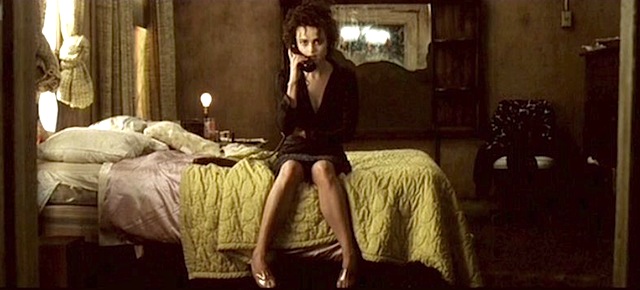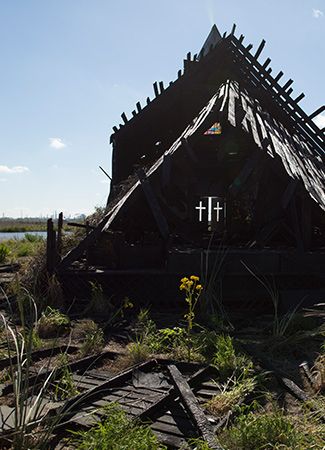
We continue our tradition of anonymous Ash Wednesday reflections on rest:
…the night cometh, when no man can work.
-John 9:4, KJV
 Four hours last week, followed by a full day of breakneck productivity. Those of us who pride ourselves on working without sleep find solace in our indefatigable nocturnal spirits, sustained by too many cigarettes and too much caffeine. Sleep is the last frontier, someone once said. Humans only have to transcend our embarrassingly creaturely need for sleep, and we can double our productivity. As Roger Ekirch discusses in his recent At Day’s Close: Night in Times Past, people used to see night as a time for vital rest and leisure, more than a mere “dormant interlude between working hours”, as he puts it, night in various times past was divided into ‘watches’, structured with an quasi-liturgical respect. I’m proud to need little sleep sometimes. It allows me to function outside the limits of the dead zone, an eight-hour interval which seems to shrink as the demand for productivity rises.
Four hours last week, followed by a full day of breakneck productivity. Those of us who pride ourselves on working without sleep find solace in our indefatigable nocturnal spirits, sustained by too many cigarettes and too much caffeine. Sleep is the last frontier, someone once said. Humans only have to transcend our embarrassingly creaturely need for sleep, and we can double our productivity. As Roger Ekirch discusses in his recent At Day’s Close: Night in Times Past, people used to see night as a time for vital rest and leisure, more than a mere “dormant interlude between working hours”, as he puts it, night in various times past was divided into ‘watches’, structured with an quasi-liturgical respect. I’m proud to need little sleep sometimes. It allows me to function outside the limits of the dead zone, an eight-hour interval which seems to shrink as the demand for productivity rises.
Sometimes it’s something productive, like a book or article. Other times, it’s one more beer, another cigarette on the porch, another episode of How I Met Your Mother. It’s as if leisure is some active salve that must be applied to a day’s work, and going to bed earlier can make you miss out on leisure, too. It’s effectively a fear of missing out. We’re overwhelmed by a bevvy of experiences during the day, and even more activity has to heal the stress. We procure this healing for ourselves with TV or other activities. Leaving things be is difficult. And if the day has been unfulfilling, we can delay going to sleep, admitting defeat; instead I want to re-raise the stakes with a losing hand, salvage the miniscule ante.
Sleep is a daily brush with death. It’s the closest we come to death’s passivity, that total negation of experience and selfhood. And yet death seems more inevitable so sleep, for now, is the last frontier: vanquish that and we have more time to fulfill ourselves, to develop into those ideal, actualized men and women we yearn to be. But it catches up: even if science finds some way to solve the lack of energy after a bad night’s sleep (or a full string of them), it will not be able to address the anxiety and grumpiness. That burden of selfhood and fulfillment-chasing does catch up, eventually.
Buy stock in Sleepytime® tea. We find it harder to sleep than ever now, and the aids we need progressively more of are selling, cropping up in new stores every day. With all our activity, the efficiency provided by computers and modeling and instruments and machinery, the one thing we’re getting worse at is sleep. It feels too much like death, because it sort of is. So much missing out, so many opportunities for achievement or leisure or self-fulfillment we are missing. On Ash Wednesday, we receive the imposition of ashes: “Remember you are dust, and to dust you shall return.” Life “imposes” sleep on us as a daily reminder of mortality. And that involuntary and unchosen imposition relieves us, above all, from our restless and irrepressible daily justifications. May we remember we are dust, and there find God’s rest.

COMMENTS
Leave a Reply












